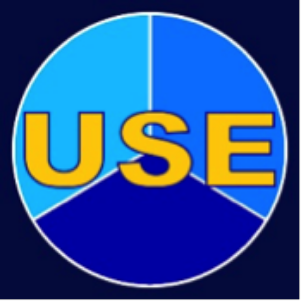The What, Why & How Relative to Training, Qualification & Examination of Remote Pilots, Instructors & ExaminersThe Current Situation
In the European Union (EU), the employment of certified remote pilots by operators to conduct flight missions in the “Specific” operational category conditions the validity of the applicable insurance and the operator’s liability.
A remote pilot certificate covering all activities likely to occur in the ‘‘Specific’’ operational category, and duly recognized by all EU Member States, currently does not exist. Consequently, it is problematic for an operator to conduct flight missions in any EU country other than his own.
The learning objectives of remote pilot training organisations in the EU Member States are not harmonized.
In addition, the relevant examination criteria and the examination processes have not been defined at EU level, and the standards relative to the aforementioned only partially exist.
In this context, it is to be noted that the examination aspect, even if managed by each National Aviation Authority (NAA), is inseparable from training and qualification. It requires the development of guidelines (e.g., practical skill assessment for standard scenarios is to be conducted by declared operators and/or entities recognized by National Aviation Authorities (NAAs), but the Implementing Regulations contain limited guidelines). Instructor and examiner roles have been sidelined in the EU Regulations and absolutely require detailed attention.
The Working Group
If the above-mentioned problems are not resolved, the EU drone market in the “Specific” operational category will not be able to develop.
Hence, the necessity of urgently addressing this situation. In response to this urgent requirement, United Systems Europe (USE) has initiated the start-up of Working Group 2205-1 on Training, Qualification & Examination of Remote Pilots, Instructors & Examiners in the EU “Specific” Operational Category.
Working Group Objectives & Guidelines
By means of four Sub-Groups and specialized Focus Groups (if required), WG 2205-1 will undertake concerted actions to advance:
1 The harmonization of:
- Learning objectives and training syllabi;
- Competence assessment criteria;
- Examination processes across Europe;
with the aim of achieving mutual recognition of pilot qualifications in the EU.
2 The professional training, qualification and examination of remote pilots and instructors in the ‘‘Specific’’ operational category, as well as related tools, standards and recommendations.
3 The harmonization of the applicable terminology & nomenclature.
4 The qualification of flight training organisations.
5 The establishment of basic safety rules for flight training sites in the EU.
6 The establishment of compliance criteria for pilot training simulators & the related software.
7 The establishment of compliance criteria for the possible use of virtual, extended, assisted, and mixed reality.
WG 2205-1 will avoid the duplication of ongoing efforts and will coordinate with such efforts, and will take into consideration and review all relevant existing national, European and international documents, standards and best practices.
Sub-Groups & Work Packages
Working Group 2205-1 will have the following four Sub-Groups and activities:
- Terminology
Create a list of commonly used terms and acronyms among the industry, and especially in the scope of training, and clarify those that are still ambiguous by aligning the corresponding vocabulary to the manned aviation ecosystem (e.g. trainer or instructor?).
- Operation-specific Endorsement Modules & Training Syllabi
In addition to those published in AMC3 UAS.SPEC.050(1)(d), define additional operation-specific endorsement modules and write the corresponding detailed training syllabi. For each module, define adequate training and up-to-date requirements for remote pilots, instructors and examiners.
- Model Documents
Create model documents for the “Practical Skill Assessment Report” and “Progress Booklet” that must be used for practical skill training and assessment of remote pilots.
- Training and Assessment Guidelines
Define generic training and assessment guidelines for instructors and examiners, in complement to the existing KSAs (Knowledge, Skills and Attitudes).
About United Systems Europe (USE)
United Systems Europe (USE) is a non-profit association registered in The Netherlands. It was established as the result of a consolidated European drone community initiative, with the objective to contribute to the creation and growth of a safe, harmonized, sustainable & socially acceptable market for manually operated, automated & autonomous (MAA) systems for professional operations in the aerial, terrestrial, nautical and space sectors.
For more information on WG 2205-1 and information on how to join, see: https://united-systems-europe.eu/working-groups/
Source: Press Release

